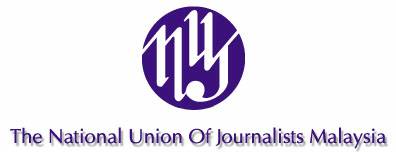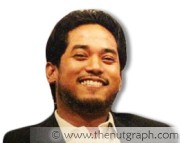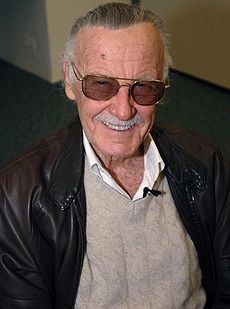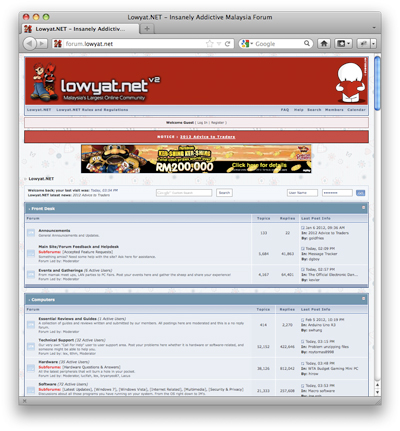
IN his commentary on the National Union of Journalists’ proposed “fair reporting pledge”, former MySinchew editor Bob Teoh urged journalists to refrain from unethical reporting. He noted that fair reporting might come at a cost, whether in increased union dues or decreased chances of promotion.
Teoh’s sentiments about both the possibility and the price of high-quality journalism apply more generally to public expression in Malaysia. Free speech isn’t cheap. It yields immense benefits — from tangible efficiency gains to the abstract value of liberty — but demands a number of inputs, whether from newsmakers or the rest of us. Here are some of its costs.
1. Our money

Journalists aren’t the only ones who should factor a monetary cost into their commitment to free speech. Quality reporting can be expensive, as the ailing print journalism industry in many countries can attest. Getting that Malaysiakini subscription (or buying that Nut Graph book) helps sustain the stream of public information.
Besides the cost to our individual budgets, achieving broad-based free speech in Malaysia will require significant public spending on infrastructure. A substantial portion of national discourse takes place online, and this discourse will be systematically skewed until we address the fact that a lot of people simply cannot afford the internet. Despite several high-ringgit projects to expand internet access, the World Bank’s World Development Indicators estimate that Malaysia’s internet penetration stayed roughly constant at 55 percent between 2007 and 2010.
2. Our time and energy

The larger the space for expression, the greater the need for verification. Homegrown NGOs, whether journalism-centric ones like the veteran Centre for Independent Journalism or otherwise, have been doing admirable work in flagging public untruths. For example, in early February MyOverseasVote chastised Election Commission chairperson Tan Sri Abdul Aziz Mohd Yusof for erroneously claiming that the US confined voting rights to taxpayers.
Few would dispute that journalism in Malaysia needs work. Our worsening score in the recently announced Press Freedom Index and dismal diagnoses from local dons tell the same story. The traditional media are too partisan while the new media are still maturing. The upshot is plenty of scope for constructive engagement to move the discourse beyond this level, whether through volunteering for watchdog NGOs or critiquing the critique ourselves.
3. Our biases
The value of free speech drastically decreases if no one is listening. And we can’t really listen to each other unless we’re open to having our perspectives challenged.
If we’re serious about free speech, we cannot have sacred cows. Even if they really are sacred, they must be open to discussion that is civil in both senses of the word. Speaking of sacred cows, the National Feedlot Corporation is fair game. And whatever Hang Tuah is — or was — he’s certainly part of our public discourse.

The United Kingdom and Eire Council of Malaysian Students-organised debate between Umno Youth chief Khairy Jamaluddin and PKR strategies director Rafizi Ramli in late January offers an encouraging example. They engaged each other’s opinions and joked about their differences. In his closing words, Khairy exhorted the student delegates to seek a balanced diet of traditional and new media sources. He was right: besides our preconceived notions, we need to be willing to rethink our media consumption habits.
4. Our anonymity
In the public sphere, you are accountable for what you say. Anyone who makes a statement in the public interest must be transparent about his or her sources and identity, unless this would jeopardise personal security.

Those who have accepted the mandate of public leadership are also accountable for what they do. It would be appropriate to quote, “With great power comes great responsibility,” except that it’s uncertain whether these words should be attributed to Stan Lee, Franklin Delano Roosevelt, Voltaire, or Jesus Christ.
However, it’s very certain that greater freedom of speech increases the pressure on public figures to be transparent. This is evident from the recent flurry of online reporting about Datin Paduka Seri Rosmah Mansor’s alleged purchases from Sydney-based designer Carl Kapp.
If they genuinely care about free expression, our public figures cannot avoid engaging with sticky issues. I have a distinct memory of hearing an NGO leader tell a reporter after a press conference “not to ask such hard questions next time” while I was interning at theSun in 2006 — it was upsetting to watch a civil-society activist ask for opacity. Today it is equally disappointing that only two Pakatan Rakyat-held state governments have declared their assets so far.
5. Our control
Most obviously, freedom of speech will cost the government its chokehold on public information. Still, this grip has already loosened. True, the government may retain control over crucial administrative data and dictate the content on TV, radio and print newspapers. Yet many of us who are privileged enough to have web access have found plenty of room for unregulated expression.

For one, there is the Lowyat forum. Although some of the posts border on the eye-poking, the portal claims more than 460,000 registered members across a dizzying range of demographics. Their Real World Issues discussions span a spectrum of political positions on many current issues in the news, and then some.
In stark contrast, there’s 1Malaysia.com.my. Although it presents itself as a “free and open forum to discuss the things that matter deeply to us as a Nation”, the only places for direct interaction are comments on Datuk Seri Najib Razak’s blog posts and a few polls. Instead, the website is dominated by Najib’s blog posts, speeches, photos and videos. In fact, the top of the page proclaims it “The Personal Website of Dato’ Sri Najib Razak” — but forums should host decentralised conversations.
Substantive freedom of speech would require the government to accept that the rakyat is not confused. We are perfectly capable of receiving multiple opinions and expressing our own. But free speech also requires all of us to accept that we are not always right. Dissent is a symptom of a healthy democracy, even if it comes in unexpected forms. Part of me just wants everyone to nod in happy unison to Rasa Sayang, but that’s not democracy.
As Najib’s personal website puts it, we need “an open and vital dialogue exploring our Malaysian identity, our purpose, and direction” because “each of us — despite our differences — shares a desire for a better tomorrow”. I buy the theory, and will invest in making sure that the realisation is open to all our differences. ![]()
Hwa Yue-Yi is a student and a paid columnist for The Nut Graph, but she’s pretty sure she won’t get any kickbacks for plugging its wonderful books in this column. She thinks free speech is a bargain.

